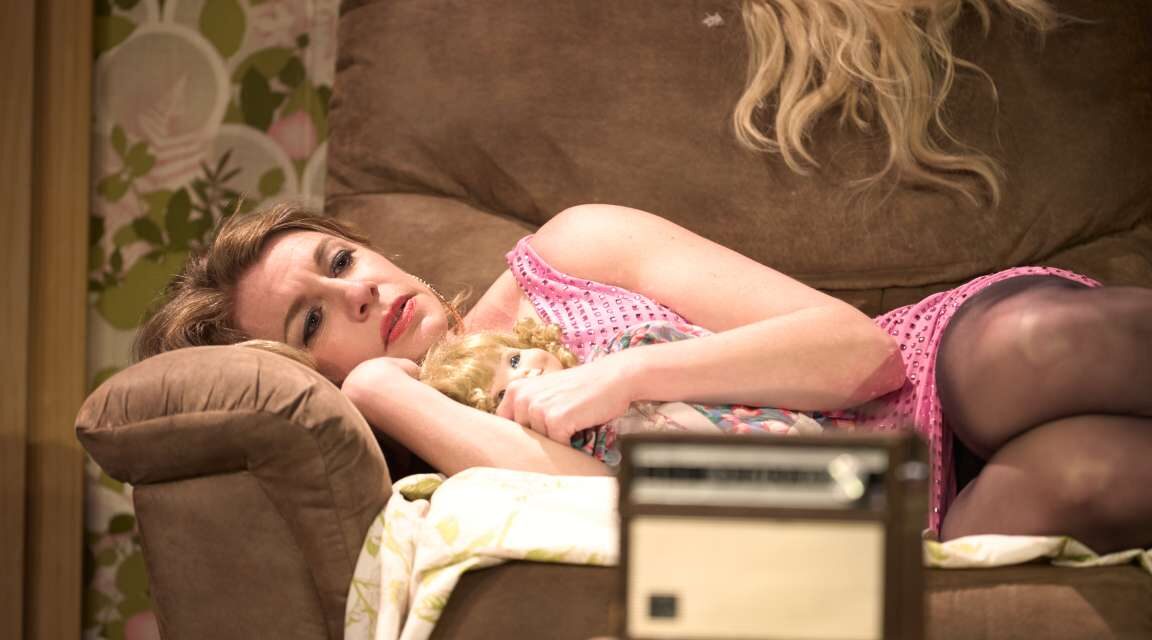By Stuart Miller…
Martyna Marjok’s play examines the struggles and heartbreak endured by women who emigrate here for work or a new life.
“New York will remain a city of immigrants, a city built by immigrants, powered by immigrants — and as of tonight, led by an immigrant,” Zohran Mamdani said in his rousing Election Night speech, an inspiring moment that was a direct challenge to the racism and xenophobia endlessly promoted by Donald Trump.
The speech might have brought a weary smile to the faces of the women who populate Martyna Marjok’s “Queens,” set in the mayor-elect’s home borough. Watching the speech just hours after seeing the play offered a line of hope that some day the welcome women like these get in New York will be warmer, an outstretched hand instead of cold indifference.
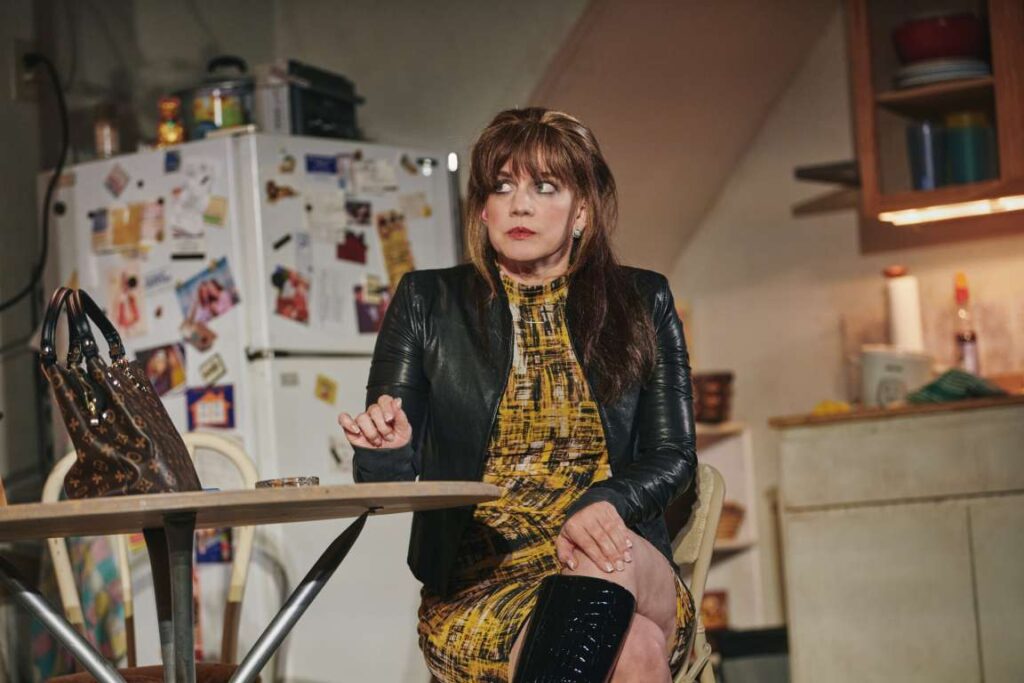
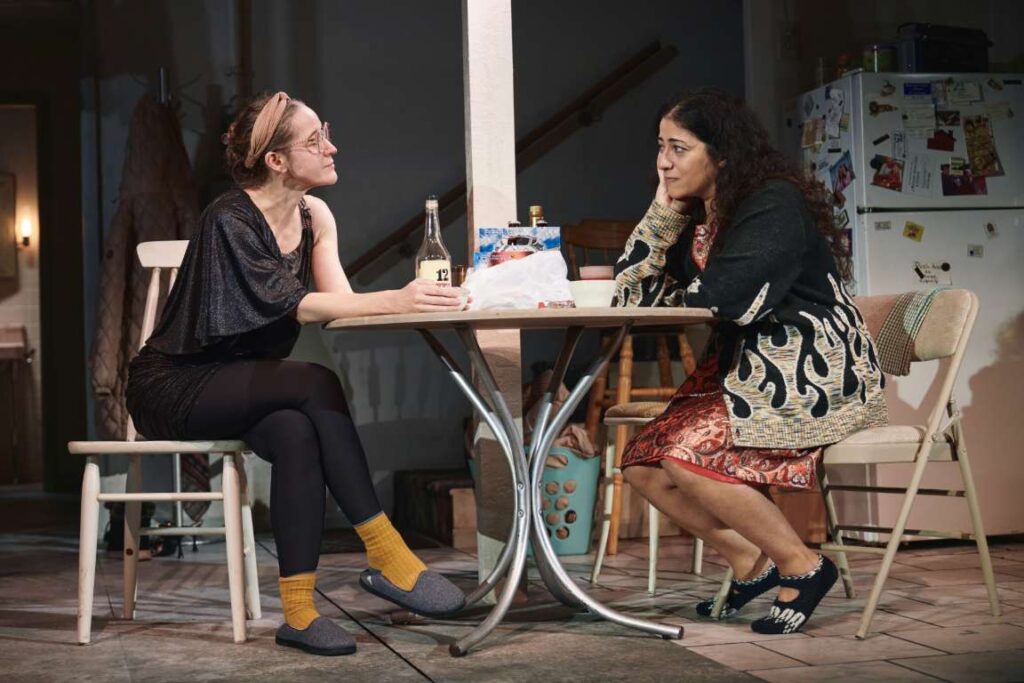
In the meantime, however, Marjok’s play–despite a second act character shift that feels more like a plot choice than organic development–remains a timely and powerful examination of the sacrifices and compromises immigrants, but especially women, make when they come here and the toll it takes on its soul.
The play opens with Inna (Julia Lester) seeking refuge in a Queens basement apartment. She’s from the Ukraine and is desperately searching for her mother, who emigrated to New York back when Inna was a girl and then vanished. Inna is desperate but also defensive and on guard that she verbally challenges her potential landlord, Renia (Marin Ireland) and then punches her in the face.
But Renia, who left a daughter behind in Poland years ago, recognizes the anger (and maybe feels the need to be punished) and gives Inna a bed. That story is then intercut with Renia’s arrival back in 2001, when she was the new face, wary but struggling for acceptance from Pelagiya (Brooke Bloom), Isabella (Nicole Villamil) and Aamani (Nadine Malouf), with whom she is crammed into that basement world.
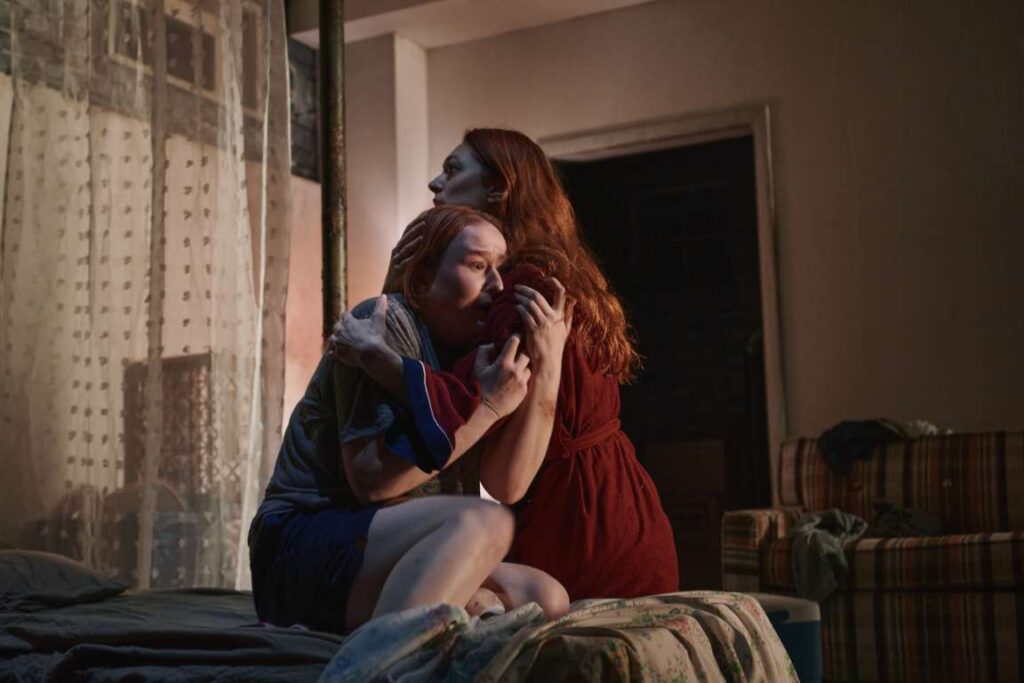
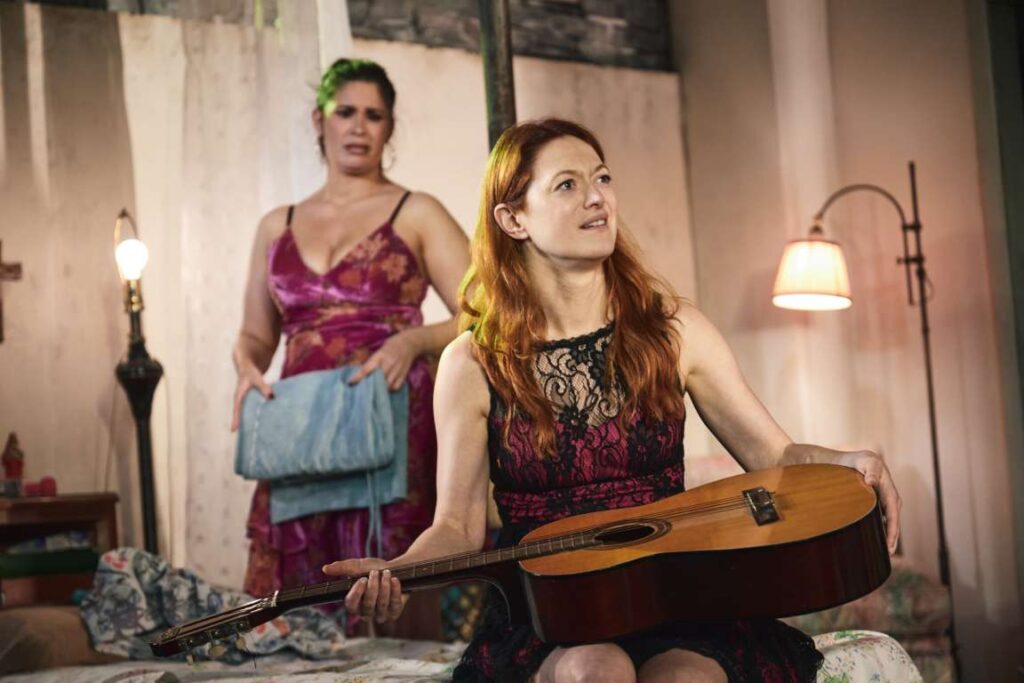
These women will both break your heart and give you hope as they perform their delicate dance of seeking camaraderie and friendship while fighting for their privacy and sense of self. Pelagiya offers to throw a farewell party for Isabella, who is preparing to return to Honduras because her daughter is growing up and her mother is dying. Isabella insists she doesn’t want the celebration, even though she desperately wants to be acknowledged; Pelagiya wants to be seen as generous even as she measures the milk in her container so she can charge anyone who takes anyone. Aamani is seemingly the most open, yet she has perhaps the deepest secret about why she came to America, a place where she could finally be her true self.
When the women finally get dressed up for the party, their brief joy in this indulgence is touching; but just as you start to relax and smile a little, their simple outing to the bodega goes awry, reminding them and the audience of how nothing is ever simple for the invisible immigrants, especially the women, even as they do all the work that keeps America humming. .
In the second act, we travel to Ukraine, where Inna is watching her friend Lera (Andrea Syglowski) offering herself up to lonely American men, hoping to be whisked off to the land of plenty as a bride. Inna is dismissive, until she gets a chance to shove Lera aside and seize that opportunity– she does but living in Florida with an abusive husband is no improvement so she flees for New York. Once she is settled in the apartment she encounters a surprise arrival, Glenys (Sharlene Cruz), who turns out to be Isabella’s daughter.
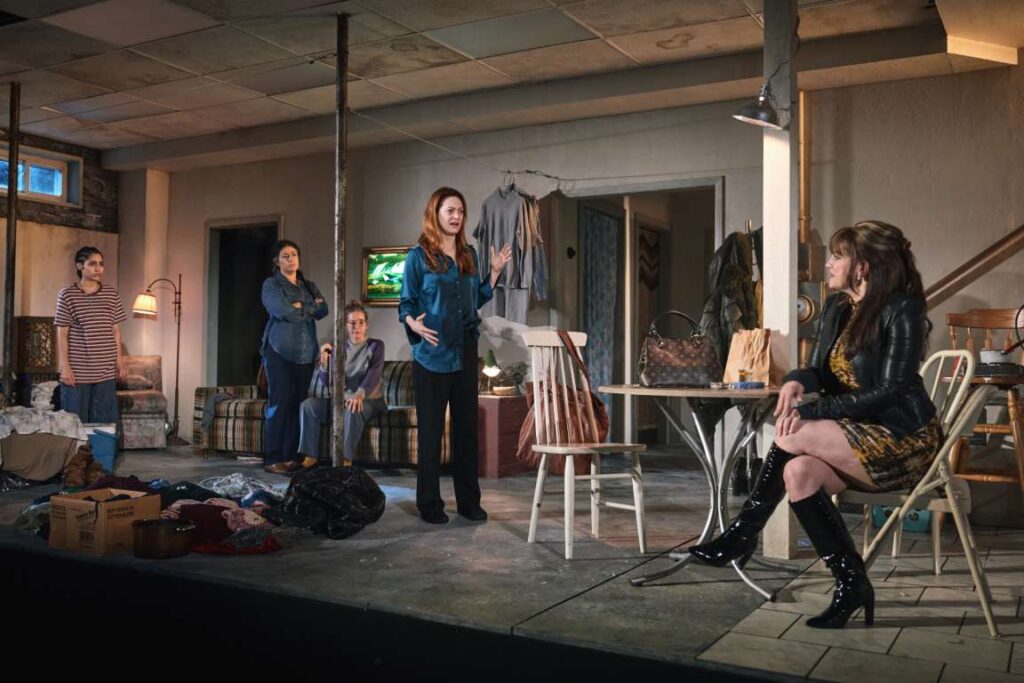
It’s here that the play unravels a bit: Renia is revealed to have been corrupted thoroughly by our country; she is shown to have become a ruthless capitalist, who is quick to betray her found family to own a slice of the American Dream. Given the way she initially treats both Inna and Glenys when they arrive, this transformation feels more like a political idea than true character development.
When Renia’s old friend Agata (Anna Chlumsky), whom we met briefly in the first act, returns with explosive information, it is clear that she is more a source of exposition than a fleshed-out character, further diminishing the impact of the second act.
Marjok’s two most successful plays, “Ironbound” and “Cost of Living,” were poignant and potent looks at the toll taken by life on the fringe of society but they were smaller and more intimate in scope. When “Queens” was originally staged off-Broadway in 2018 critics complained that it ran nearly three hours and featured eleven characters and meandered through a second and third act, losing the emotional heft of the first act.
She has done major rewrites for the new production, whittling the story down to eight characters in two and a quarter hours. I didn’t see the original but I’m sure these changes have led to a sharper and better play. It’s aided by a cast that is largely stellar (Syglowski’s accent comes and goes, though her performance is good), although Ireland and Malouf are the standouts– Ireland, as always, can have a thousand emotions cross her face while still keeping the world at a distance while Malouf brings a much needed warmth and open heart to this harsh world.
Renia’s journey doesn’t have to feel inorganic and it’s possible that one thing that got lost in the trims was a better sense of how the bitterness that consumes her the longer she is without her daughter forces her to focus on making something of herself in the land of opportunity. But the character simply tells us that several times, which is far less effective.
Still, Martok has again shone the spotlight on the people in the margins, to show them as real humans, people deserving of understanding, compassion and acknowledgment. Maybe two terms from now, Queens in Mamdani’s New York will be able to offer that in real life.
“Queens” is playing at Manhattan Theatre Club, 131 W. 55th Street with a running time of 2 hours and 15 minutes and one intermission.
Photos by Valerie Terranova

